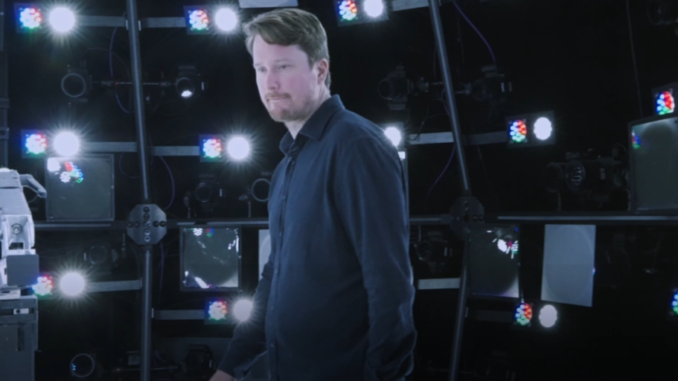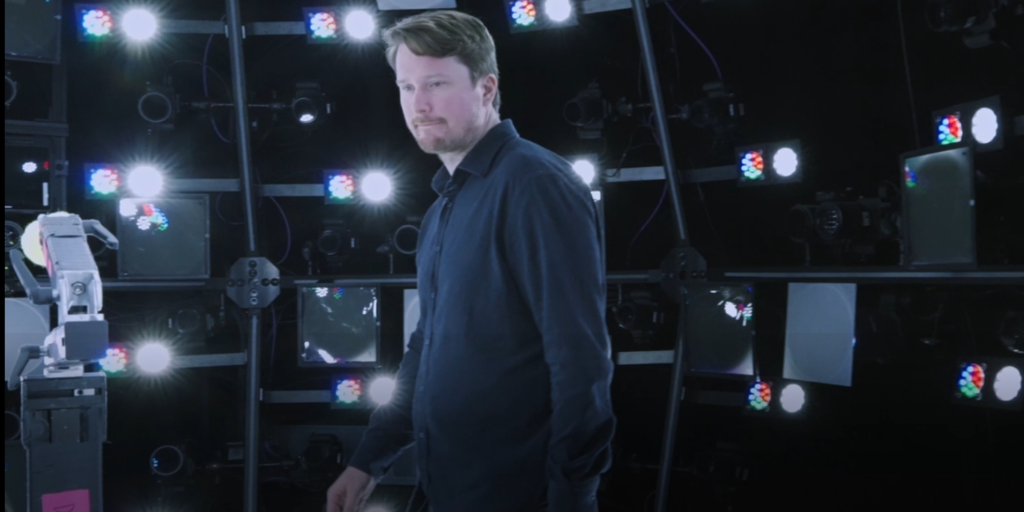
[ad_1]

While Screen Actors Guild members continue to fight for protections from the use of artificial intelligence tools by studios, some prominent actors and celebrities are reportedly embracing AI technology—at least to stay a step ahead of those intent on exploiting their likenesses.
Startup Metaphysic AI says its Metaphysic Pro tool can give public figures a new lease on their digital life by providing an end-run around issues of compensation and impersonation.
The company claims that celebrities like Anne Hathaway, Octavia Spencer, Tom Hanks, and Paris Hilton are using it. A Metaphysic spokesperson told Decrypt they are among the “early users who have scanned their likeness and are storing within Metaphysic Pro.”
Users can upload images from smartphones or sign up for a full face and body scan in a studio, and those scans that contain the characteristics that make up the individual are stored in Metaphysic’s database. Metaphysics says this allows users to keep control of the traits required to train an AI model on their likeness and voice.
Hollywood talent firm Creative Artists Agency, which represents Hathaway, Spencer, and Hanks, declined to comment on the record. Decrypt reached out to other representatives for those actors but did not immediately receive a response. A representative for Hilton also declined to discuss the project.
Metaphysic AI inked a deal with CAA in January to develop generative AI tools and services, including photorealistic digital avatars, for its global roster of talent.
Metaphysic co-founder and CEO Tom Graham told Decrypt that owning the dataset that creates a performer’s replica is crucial in fighting illegal deepfakes, or AI-powered copycat videos and imagery used to create a false impression. He said it can also help ensure that actors are compensated for using their image and voice.
“When I talk to people about this concept of what Metaphysic Pro is an embodiment of, which is: ‘Do you want to own your data around your face and voice, the things you need to create your future performance?’” Graham told Decrypt in an interview. “The answer is, ‘Yes,’ across the board.”
Launched in 2021 by Graham, Chris Ume, Kevin Ume, Miles Fisher, and Martin Adams, the London-based Metaphysic AI team is probably best known for its deepfake avatar of Elvis Presley for a “live performance” on “America’s Got Talent” in September of last year, as well as an unofficial version of actor Tom Cruise called “Deep Tom Cruise,” which went viral last year on social media.
AI deepfake technology has also been used to create replicas of Drake and the Weeknd, Selena Gomez, Oasis, and The Beatles, leading to questions of copyright and infringement.
“Nobody has any right to how their voice sounds or their face looks. You don’t have any property in that,” Graham asserted. “So if someone creates an unauthorized deepfake based on a bunch of pictures, they can put that online and you can’t claim that infringes your IP—which means that you can’t very effectively get that taken down.”
Graham emphasized that Metaphysic AI is a custodian of the user’s data and not the owner, adding that Metaphysic Pro as a platform is about storing the essential data required to train AI models.
“You own that data. We are holding that data for you, like custodians, like when you put money in the bank. We don’t own that data,” Graham said. “There’s nothing tricky in our terms of service that says that we secretly own it, and we can do whatever we want with it, and you just get to use it like a service.”
Artificial intelligence is one of the key issues in the negotiations between the Screen Actors Guild (SAG-AFTRA) and the Alliance of Motion Picture and Television Producers (AMPTP). The use of artificial intelligence to create digital avatars of background actors has been a sticking point in the ongoing discussions.
“Because of what’s happened with generative AI, what’s happening in Hollywood, people are increasingly concerned,” Graham said. “And to be honest, I feel that that emotion of concern is the right feeling to have. That’s a human response to this idea that somebody could puppetmaster you, or create a version of you saying or doing something you didn’t do.”
On Wednesday, California Assemblymember Ash Kalra introduced legislation allowing actors to nullify contracts that include vague stipulations on the use of AI. But while policymakers look to enact legislation to control the use of AI in contracts, industry experts like Graham stress the importance of taking preventative measures to ensure ethical AI practices.
“You have to fight; you have to be proactive to combat [illegal deepfakes] and to be a good actor in this space,” Graham said. “I don’t think it can be passive.”
Stay on top of crypto news, get daily updates in your inbox.
[ad_2]
Source link




